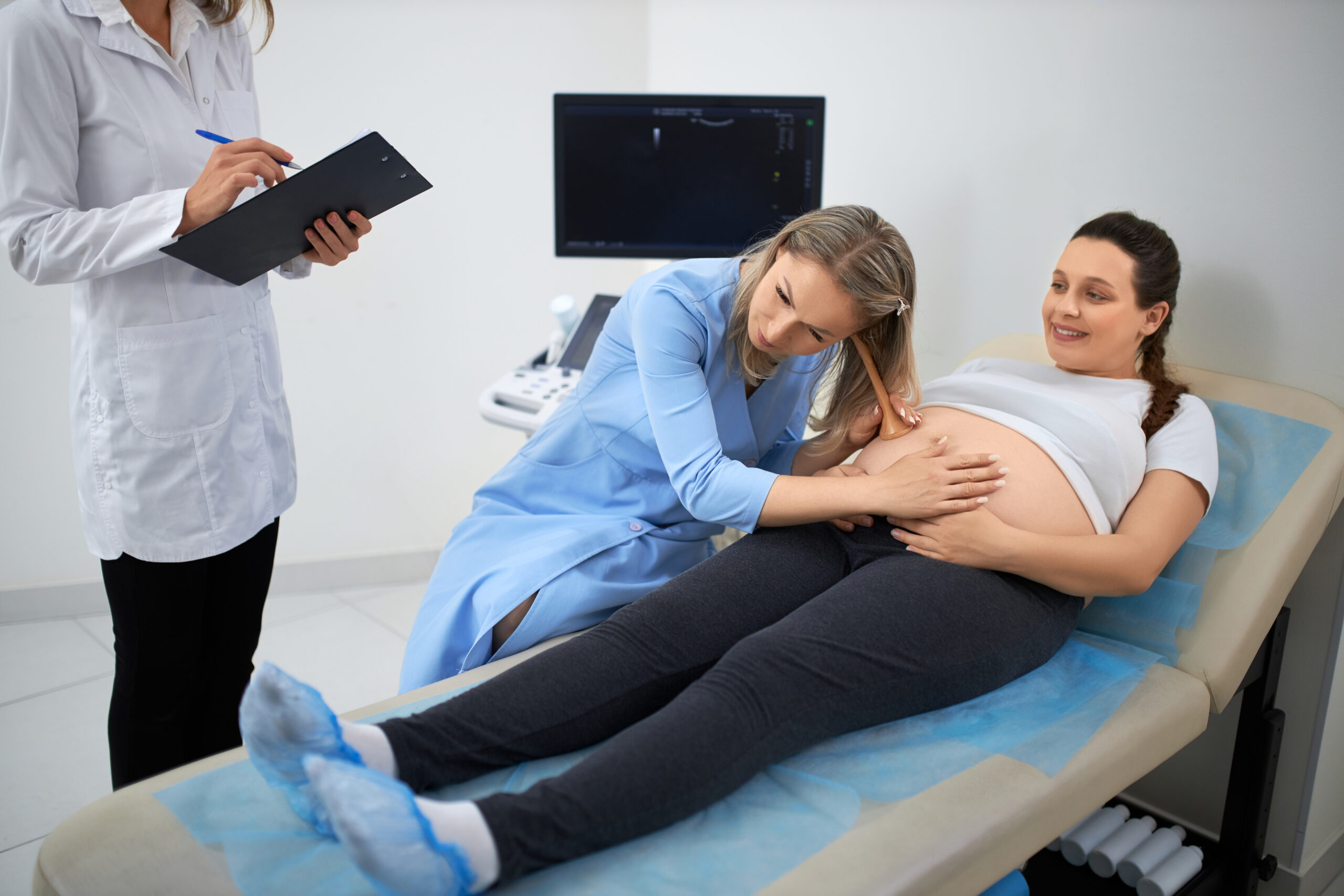Women’s health is one of the most paramount topics that is not often discussed. But it became crucial to talk about health and its related complications. When it comes to pregnancy, it brings a rollercoaster of hormonal fluctuation, which needs regular check-ups, monitoring, and assistance to treat issues. As per UNICEF data, only 57% of women received at least four antenatal check-ups. But why?
This raises the question: do women not know the importance of antenatal checkups?
Pregnancy should be a positive experience for all women, and they should receive the care that respects their dignity- Director of Reproductive Health and Research, WHO.”
What are Antenatal Checkups?
It is defined as the regular medical support provided by a gynecologist and an obstetrician to pregnant women. This helps to analyze the health of the mother and the fetus to avoid potential complications in the early stage. This includes baseline tests like Hepatitis B and C, and HIV, urine test, blood pressure monitoring, ultrasound, genetic screening, and nutritional assessment. From knowing the good news to birthing a baby, and even after that, every step towards motherhood is crucial.
Not everyone knows what things they need to do, what they need to eat during pregnancy, and even after that. Guidance from a gynecologist and obstetrician is necessary throughout the phase.
This article will let you know the importance of regular antenatal checkups in gynecology and obstetrics.
Key Objective of Antenatal Check-ups
- Monitoring overall health
- Managing existing health-condition
- Checking fetal health and development
- Early detection and intervention to access timely management
- Educational guidance related to nutrition, emotional support, and pregnancy education
- Preparing the mother for birth planning and complication readiness
Why Are Antenatal Check-ups Crucial?
1. Early detection-
Miscarriage is the most common and serious complication that happens in 10-20% of women. Because the beginning phase of the pregnancy is a sensitive period, issues like ectopic pregnancy can occur. Through check-ups, gynecologists and obstetricians can able to diagnose the problem early and provide timely treatment. Apart from that, the reproductive health of the women is also addressed in these checkups, and it includes pre-existing diabetes, preeclampsia, infection, vaginal bleeding, placental problems, etc.
Important: Women with fibroids or PCOS require extra care during pregnancy, which is why antenatal care becomes more crucial for them to reduce the risk of complications.
2. Fetal development
As you already know, checkups assisted by tests help to evaluate the growth of the baby, understand abnormalities, structural growth, heart rate, and fetal movement. Also, by knowing the condition of the mother, it becomes easy for the gynecologist to know the maternal health, because the mother’s health has a direct impact on the fetus.
3. Prepare for a healthy delivery
It doesn’t matter whether it is going to be a normal or C-section delivery; the woman’s body needs preparation before delivery. Also, at Cradle Children Hospital, you can find a maternity plan through which you can easily plan your pregnancy till delivery. It will include guidance on diet, nutrition, supplements, exercise, labor pain, and precautions. Based on medical history, physical examination, lab test, and ultrasounds, Cradle Children Hospitals’ gynecologists and obstetricians provide guidance, because they know the importance of regular antenatal check-ups.
4. Emotional support-
Around 10% of women experience perinatal depression, which impacts their sleep, appetite, and energy level. This condition significantly impacts the growth and development of the child. That is why emotional support and counselling are crucial for pregnant women, so that they can handle the situation very well. Antenatal care and check-ups are able to identify the mental state of the mother, making it possible for the gynecologist to diagnose stress and depression.
Scientific and Clinical backing
For safer pregnancy and childbirth, women must consider antenatal care at least four times during a low-risk pregnancy. In a high-risk pregnancy, your gynecologist will recommend that to visit more often to check the status of fetal development. It will not only lower the chances of complications, but also prepare womne’s body to deliver a healthy baby with a healthy body.
WHO–
Pregnancy-related deaths are increasing because women are tackling health conditions without proper guidance. Problems are not only with mothers; the negligence is also impacting the baby, like stillbirth. To strengthen maternity care, antenatal check-ups are crucial to prevent severe complications.
NIH–
Although it is hard to quantify the actual number to define the reduced risk of particular pregnancy-related complications. But studies show that antenatal care reduces the risk by 79%, which is not a small number.
How Often Should You Visit?
Based on the health condition of the mother, obstetricians recommend the visit for antenatal check-ups. Here is the recommended schedule-
- The first 28 weeks- monthly visits
- Between 28 to 36 weeks- visit every two weeks
- After 36 weeks- weekly visits
Final Thought
Regular antenatal checkups are not an option for pregnant women; it is a must for a safer and healthier pregnancy. It doesn’t matter whether or not your pregnancy is smooth or without any challenges; antenatal check-ups can help you ease the upcoming phase of pregnancy, and that is why antenatal check-ups are important in gynecology and obstetrics. From the first step to becoming a mother, till becoming a mother, every step you will need guidance, which you can get from Cradle Children Hospital.
Moreover, if you have any queries related to this or other gynecological questions, contact us now.





